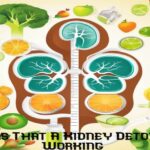In Liver cirrhosis liver is the second main organ in our body, so special attention should be paid to its body. When there is liver dysfunction, many types of problems begin to appear. Such as fatty liver, cirrhosis, hepatitis, etc.
Today we are going to talk to you about cirrhosis is a condition in which a person’s liver starts to malfunction at a slow rate. For this reason, the liver cannot perform its function properly. The liver performs many important functions in our body, such as removing harmful substances, cleaning the blood, manufacturing nutrients, etc.
If the liver is slightly damage, it gets better on its own. In this, scar tissue begins to form, which turns the liver into healthy tissue. But if cirrhosis begins to increase, blood flow begins to decrease and the liver slows down its work very slowly. The main reason for this may be hepatitis or alcoholism. Before treating cirrhosis, your doctor may recommend some tests, including a biopsy, blood tests, and imaging tests. Cirrhosis treatment is not easy, so knowing the symptoms first, then the complications do not increase, so liver transplantation is suggest.

Causes of Liver Cirrhosis
The main reason for liver condition worsening is the consumption of alcohol for a long time and accumulation of excess fat in the liver or hepatitis viral for a long time etc. Liver cirrhosis can cause other diseases.
The problem of liver cirrhosis starts increasing rapidly by drinking alcohol. Therefore, an excessive amount of alcohol slows down the ability of the liver to function and eventually damages the liver.
There may be other reasons for cirrhosis:
- Bile duct weakening
- Stiffness of the bile duct
- Having more iron
- Having Wilson’s disease
- Genetic digestive problem
- Bile duct failure
- Overuse of certain drugs
Symptoms of Liver Cirrhosis
The symptoms of liver cirrhosis are common in the beginning, but can lead to severe symptoms as they progress.
Common symptoms of early cirrhosis are feeling tired.
- Insomnia
- Getting nausea
- Pain when touched instead of liver.
- weakness
- Hands turning red
- Appearance of blood cells on the skin of the upper abdomen
- Weight loss
- Jaundice problem ( Click Here to read more about Jaundice Treatment)
- Swelling in feet
Symptoms as cirrhosis progresses – Dizziness
- Bleeding gums
- Darkening of urine color
- Decreased sexual desire
- Hair fall
- Blood in the vomit
- Bleeding nose
- Muscle cramps
- Rapid heartbeat
- Memory related problem.
- Shoulder pain & Neck pain
- Frequent fever
Stages of liver cirrhosis
If you’ve been diagnosed with cirrhosis, you’ve already gone through the early stages of liver disease. Having cirrhosis means that your liver has scar tissue because it was damaged.
For these reasons, it may be easier to talk about cirrhosis according to the classification system you are most likely to hear from your health care provider. He or she may refer you for compensated cirrhosis or decompensated cirrhosis.
Compensated cirrhosis
It means you have cirrhosis but no noticeable symptoms yet (you are asymptomatic). Lab tests and imaging results may not be abnormal. A liver biopsy is one of the most important way to confirm a diagnosis of liver cirrhosis. Median survival in patients with compensated cirrhosis is approximately 9 to 12 years. (The median is the midpoint in the set of numbers, so an equal number of individuals survived 9-12 years as many individuals survived during this time range.)
Decompensated cirrhosis
This means that your cirrhosis has gotten so bad that you have noticeable symptoms. Your health care provider learns about your condition based on your history and physical and laboratory findings. You have at least one complication, including jaundice, ascites, hepatic encephalopathy, hepatorenal syndrome, variceal bleeding, or liver cancer. You will usually be admitted to the hospital for care. Median survival of this disease in the patients with decompensated cirrhosis time is approximately two years.
Click Here to read more about Fatty liver Disease
Prevention of Liver Cirrhosis
Limit the amount of alcohol
If the problem of your cirrhosis is related to alcohol, then you should stop drinking alcohol immediately. Alcohol accelerates the progression of cirrhosis, regardless of the cause of the cirrhosis.
If you are having difficulty cutting down on your alcohol intake, your doctor can advise and help you with this.
Protecting yourself from hepatitis
Hepatitis B and hepatitis C are both spread through unprotected sex or using the same injection.
The risk of getting hepatitis B and C can be reduce by using condoms during sex and not using needles used by another person.
Vaccination is available for hepatitis B, but there is currently no vaccine available for hepatitis C.
Eat healthy food
Choose a plant-based diet that contains plenty of fruits and vegetables. Reduce the amount of fatty and fried foods. Consuming caffeinated coffee may protect against fibrosis and liver cancer.
Make a healthy weight goal
Try to maintain your healthy weight to reduce your risk of developing non-alcoholic fatty liver disease. Note that this can lead to the development of cirrhosis, so always eat a balanced diet and exercise regularly so that you can achieve a healthy weight. Always maintain this weight also.
Diagnosis of Liver Cirrhosis
The diagnosis of liver cirrhosis begins with the patient’s previous medical information and physical examination. The doctor can take complete information related to your medical history. When looking at your past medical history, doctors take into account whether you drink a lot or have been expose to hepatitis C, or if your family has had an immune system problem. In case of such or other such danger, your physical examination can be done, during which some symptoms are notice or not seen:
- Yellowing of the skin
- Shrinkage of testicles
- Enlargement of breast tissue (in men)
- Lack of alertness
- Yellowing of eyes (jaundice)
- Redness of palms
- Trembling of hands
- Enlargement of liver or spleen
With the help of the test, it is found out that how much damage has happen in the liver. Some tests are done to evaluate cirrhosis, which are:
- Complete blood count (to detect anemia)
- Coagulation blood test (to see how fast the blood clots)
- Albumin (test for the production of proteins in the liver)
- Liver function test
- Alpha Fetoprotein (check for liver cancer)
Some types of tests used to evaluate the liver are:
- Upper endoscopy (to see if esophageal varices are present)
- Ultrasound scan for liver
- MRI for abdomen
- CT scan for abdomen
- Liver biopsy (a definitive test for cirrhosis)
Treatments for Liver Cirrhosis
Liver cirrhosis is treat base on the cause. If there is an initial problem, the speed of the scar has to be reduce to stop it. in order to prevent further complications. In case of severe liver cirrhosis, hospitalization may be require. Let us elaborate further.
Doctors advise people suffering from liver cirrhosis not to consume alcohol, because alcohol and drugs damage the liver.
A person suffering from liver cirrhosis should consult a doctor before starting a new drug. Take medicine only after that because wrong medicine increases liver cirrhosis.
People suffering from cirrhosis must be vaccinate against Hepatitis A, B. Both infections further damage liver cirrhosis. Apart from this, people suffering from cirrhosis should get the screening blood test done.
The doctor may prescribe certain medicines to reduce the symptoms of liver cirrhosis. in order to reduce the symptoms. The patient should get his check up done regularly.
If the liver fails completely, the final treatment is a liver transplant. Liver transplant is a surgery in which the disease part is remove and a healthy liver is replace. A healthy liver is taken as a donation from a distant person.
Liver Cirrhosis Complications
Complications from cirrhosis can be:
- Kidney failure
- Liver cancer
- Blue spots on the skin (due to low platelet count or due to poor clotting)
- Insulin resistant and type 2 diabetes
- Hepatic encephalopathy (confusion caused by the effects of blood toxins in the brain)
- Gallstones (hardening of the bile ducts and formation of stones by obstructing the flow of bile ducts)
- Enlargement of the spleen (splenomegaly)
- Bleeding (due to decreased clotting proteins)
- Sensitivity to drugs (process of liver to drugs)
When should I see a doctor?
If you are experiencing any of the above symptoms or signs, then go to the doctor at the same time. Especially if you have been diagnosed with cirrhosis in the past, don’t be too late to see a doctor.
Some other distinctive symptoms –
- Fever with high fever, which is often caused by an infection
- Breathlessness
- Vomiting blood
- Dark or dark colored stools
- Mental Illness or feeling drowsy
However, these symptoms can feel very different, as your liver is responsible for many functions. If it stops working completely, it can result in many problems gathered together.










